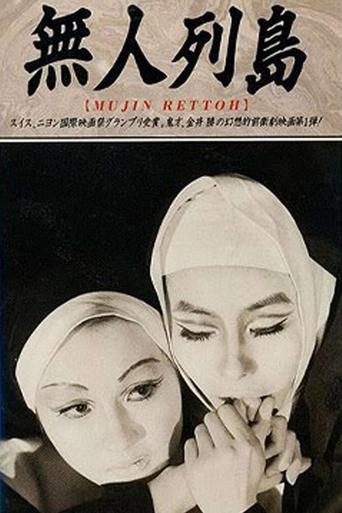

Purely Joyful Movie!
... View MoreToo much about the plot just didn't add up, the writing was bad, some of the scenes were cringey and awkward,
... View MoreFun premise, good actors, bad writing. This film seemed to have potential at the beginning but it quickly devolves into a trite action film. Ultimately it's very boring.
... View MoreIf you're interested in the topic at hand, you should just watch it and judge yourself because the reviews have gone very biased by people that didn't even watch it and just hate (or love) the creator. I liked it, it was well written, narrated, and directed and it was about a topic that interests me.
... View MoreIf you like surreal Japanese director's like Shuji Terayama, Toshio Matsumoto, or, most recently Takashi Miike, check this movie by one of the most underrated experimental director ever.Director's comment: The Desert Archipelago was my first independently directed and produced film. The film won the Grand Prix at the Nyon Internationa Film Festival and garnered considerable attention both overseas and in Japan. The film follows the extremely simple story of an ugly boy who is manipulated by nuns as he matures into a man, but woven into that narrative are my own experiences and the history of postwar Japan as well as numerous fantasies. The result is a multifaceted and multilayered objet, the birth of a newly sur-realistic film-making. On August 15th, the day the war ended, I was in the third year of primary school. That day, when the reality that I had known turned completely upside down, I was saddled with the trauma of no longer being able to believe in anything. Searching here and there for some kind of spiritual salvation, I finally found the existentialism of Albert Camus. From there, I was able to build up my own kind of existentialism and this film is best understood as based in that "Kanai Katsu Existentialism." The film was praised by European film scholars Max Tessier and Tony Rayns and was screened as part of "Eiga: 25 Years of Japanese Film," a special program at the 1984 Edinburgh International Film Festival..
... View More